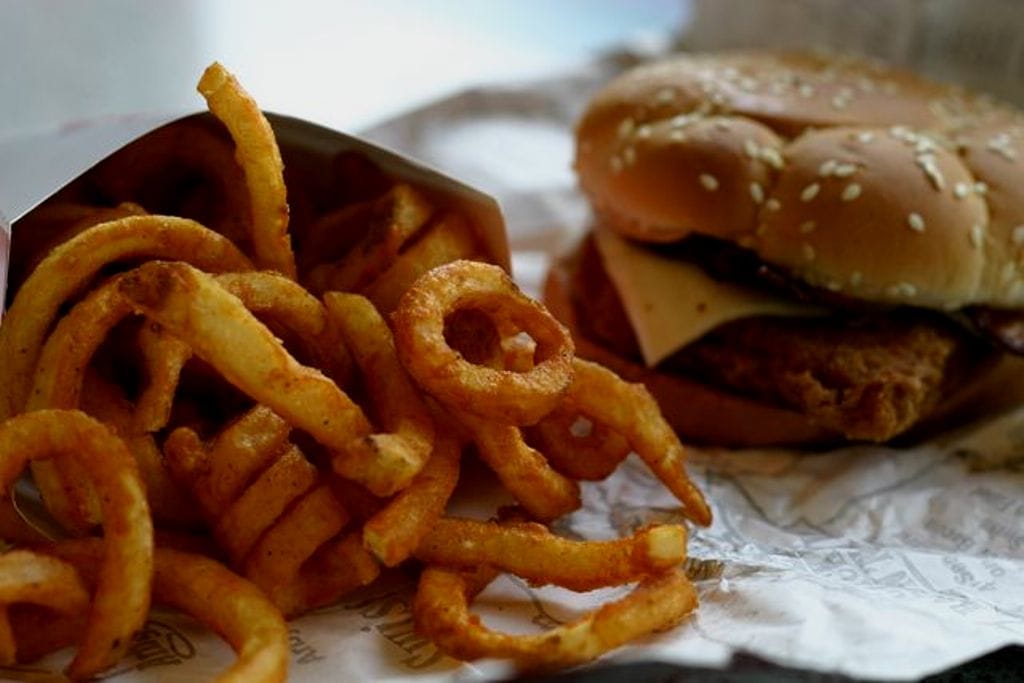The numbers are sobering: “Seventy-two percent of men and 64 percent of women are overweight or obese. Approximately 32 percent of children and adolescents ages two to 19 years old are overweight or obese,” according to data derived from the USDA “Nutrition and Your Health: Dietary Guidelines for Americans.” The news is even worse for those of us living in West Virginia. According to the 2012 Behavioral Risk Factor Surveillance System, West Virginia has the third highest obesity rate in the nation at 33.8 percent. Only Louisiana (34.7) and Mississippi (34.6) are higher. People with low incomes and African-Americans are disproportionately susceptible. Being overweight or obese are determined by one’s body mass index, the proportion of lean muscle tissue to stored fat. The primary cause of being overweight or obese is poor diet combined with sedentary lifestyles.
In “Salt, Sugar, Fat,” Michael Moss wrote: “On average, we consume 71 pounds of caloric sweeteners each year. That’s 22 teaspoons of sugar, per person, per day.” According to government data, the worst culprits are pizza, dessert-based grains and processed cheese. These ingredients are key components of manufactured foods. Statistics indicate that Americans are the most obese people on earth.
Unlike natural whole foods, processed foods are stripped of nutrients and fiber. They lack digestive enzymes and are laden with high amounts of added salt, sugar and fat. Food should do more than satiate appetite; it should nourish and renew every cell in the body. Nutrient-dense organic foods are not only low in calories, they promote wellness, make us feel full, contain plenty of fiber, and provide long-lasting energy without spiking blood sugar. Examples include fresh fruits and vegetables and complex carbohydrates such as whole grains.
By contrast, processed foodstuffs are deficient in nutrients and laden with empty calories derived from added sugar and fat. Like a narcotic drug, they are formulated to create cravings for sugar and fat and to promote overconsumption. It was Hungarian mathematician Joseph Balintfy who coined the phrase “bliss point,” which is the precise amount of sugar in a product that maximally lights up the brain’s pleasure centers. When people continue eating even when they are full, as so many of us do, the bottom line of food manufacturing companies expand in proportion to the American waistline. Synthetic food products not only provide poor nutrition and empty calories, they promote obesity and disease. Government data indicates that obesity, hypertension, diabetes, stroke, heart disease and cancer are reaching epidemic proportions.
It is no accident that food companies hire more chemists than dieticians and nutritionists to manufacture new products. Food chemists are paid lucrative salaries to create synthetic commodities—one hesitates to call it food—that addict us to salt, sugar and fat, products that are literally promoting disease and premature death. Meanwhile, companies like Frito-Lay, Papa John’s and Pillsbury are rolling in the dough.
Particularly disturbing is the funding for research that goes into products that exploit the biology of young children whose taste buds are more readily titillated by sweetness than adults. By addicting children to substances that do them harm, food companies are creating a wide consumer base and brand loyalty that lasts a lifetime, regardless of how short or long that lifetime is. Are the creators of disease-promoting synthetic food any better than a home chemist cooking meth in his kitchen lab and distributing his merchandise to children on the street corners of downtown Martinsburg? Capitalism does not make moral distinctions.
The next time you crave something sweet and salty that melts in your mouth, think about what you are doing. Ask yourself: Who profits and who pays? Lifelong addictions, including those to salt, sugar and fat, are not easy to overcome. The first step is to become more conscious of what you are putting into your body. Shop the outer perimeter of grocery stores and buy local produce whenever possible. This is where the real food is. Avoid everything inside the perimeter. Self-respect dictates that we make healthier choices.

Leave a Reply